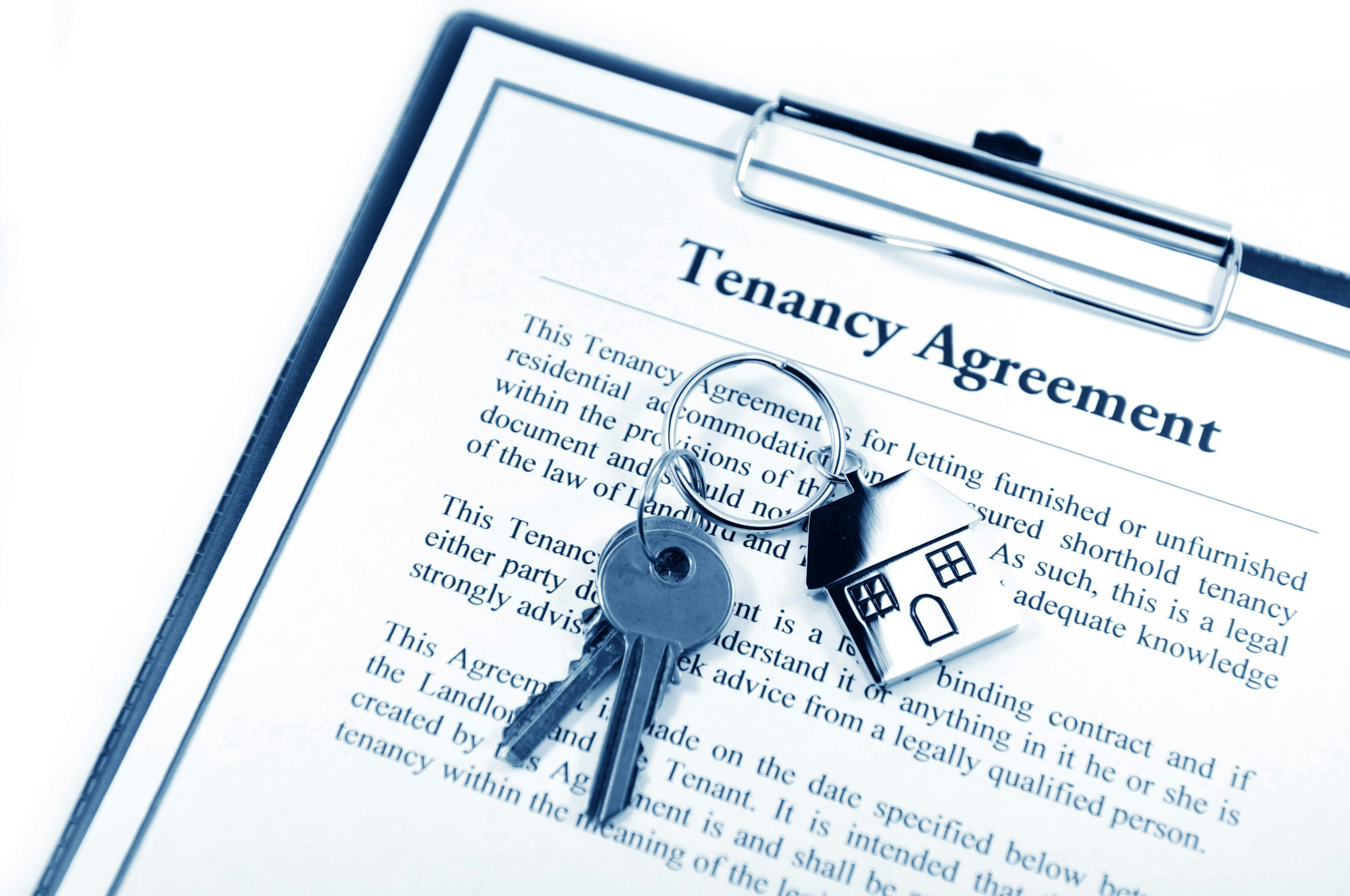How landlords can encourage long-term tenants
By Alan Boswell Group

If you’re a landlord looking to stabilise your rental income, it could be worth focussing on attracting long-term tenants.
Not only can it help you avoid leaving your property empty frequently, but you’ll also save time and money when it comes to marketing and tenant referencing checks.
Here, we look at how to find good long-term tenants, to help you get the maximum return from your rental property.
What’s considered a long-term tenant?
From a practical point of view, a long-term tenancy is a minimum of 12 months, although some letting agents and landlords will consider any tenancy over six months to be long-term.
There are different types of tenancies in the UK, but the most common agreement is an assured shorthold tenancy (AST). ASTs typically tie tenants in for 12 months, often with a six-month break-clause.
When the contract ends, you can either agree to another fixed-term contract (AST) or let the tenancy continue from month to month (known as a periodic or rolling tenancy).
Do most landlords prefer longer tenancies?
This depends on the type of property you have and the type of tenants you want.
Short-term tenancies can be more lucrative and attract higher rents, particularly if the property is in a city where there’s a need for lots of temporary accommodation. That said those higher rents reflect the time, effort, and money it takes to manage a short-term let.
Is it better to rent short-term?
Short-term rentals offer you and your tenant flexibility, but no one tenancy type is better than another. Fundamentally, what’s right for you will depend on the location of your property, the type of tenant you want and how much time and money you’re able (and willing) to part with.
If you’re weighing up your options, remember that short-term tenants usually expect a fully furnished property. However, changing tenants every few months will likely result in quicker wear and tear, leaving you with additional repair and maintenance costs.
What are the benefits of long-term tenants?
Short-term tenancies offer flexibility, and long-term contracts provide stability, catering to tenants’ changing needs. For example, families and older adults want the security of knowing they can stay in their homes for the long term.
As well as helping tenants, longer-term arrangements make good business sense for landlords. Clear benefits for you include:
Fewer periods of unoccupancy
Having long-term tenants minimises the time your property stands empty and lowers the risk of vandalism.
Also, remember that properties empty for more than a certain length of time (around 30 days at a time) may not be covered by a standard landlord insurance policy and may need to consider unoccupied property insurance.
If you have landlord insurance that includes alternative accommodation you’ll be able to retain a good tenant by housing them elsewhere if the property becomes uninhabitable, rather than being forced to end the tenancy.
Stable income
Long-term tenancies provide a stable and consistent income stream, securing your rental yield and helping you budget. If you’ve got a buy-to-let mortgage, having the certainty of a monthly income to cover your repayments also gives you peace of mind.
Less administration
Long-term tenancies limit the amount of admin you need to do as you’ll only need to carry out tenant referencing and affordability checks every once in a while. Whether you do this yourself or use a lettings agent to manage this for you, a long-term tenant can save you valuable time.
Tenants treat the property as their own
Tenants in a long-term let are more likely to invest and take care in their surroundings, lowering the risk of damage to your property.
Long-term tenants can also help slow down wear and tear on any contents you provide (for instance, curtains, blinds, and carpets), saving you money on maintenance.
Peace of mind
When tenants first move in, it’s natural to be slightly anxious about how their tenancy might pan out. The advantage of having a (good) long-term tenant is that you can be confident that they’ll treat your property with respect, helping to keep it well-maintained for the foreseeable future.
Are there any drawbacks to long-term tenants?
One of the main disadvantages is a lack of flexibility, particularly if you want to increase rent or need the property empty to carry out repairs.
While your tenancy agreement can specify the conditions around a rent increase, asking for one might negatively impact your relationship with your tenant. Similarly, long-term renters often pay slightly lower rent than the market in exchange for the stability they offer.
Another major drawback is that if you’re unlucky with your tenant, problems can become long and drawn out.
How do I find long-term tenants?
Not everyone who rents is looking for a long-term tenancy, and not everyone who wants to be a long-term tenant will be the right one for your property.
If you want to position your property as a long-term let, you can increase your chances of finding and keeping tenants by:
Carrying out comprehensive tenant referencing
Landlords have several responsibilities, and not just to their tenants. One task you must carry out is a right-to-rent check – this ensures that prospective tenants have the right to live in the UK. If they don’t, you could face fines and be prosecuted.
Tenant referencing can also include background and affordability checks to help you find the most suitable tenant for your property. Don’t forget that if you have rent guarantee insurance, you must reference your tenants and ensure they meet the criteria set out in your policy. If not, your insurer can reject a claim you make.
Letting your property unfurnished
Letting an unfurnished property means tenants can truly make it their home. Allowing tenants to decorate and paint walls can also help them feel more attached to a property and reluctant to move.
Most tenancy contracts include a clause about returning the property to its original state when tenants leave, so if you’re concerned about colour or décor choices, check that this is specified in your agreement.
Accepting pets

Three-quarters of private tenants (76%) own or want to own a pet, but only 8% of rental properties are listed as pet-friendly.
If you’re happy for your tenants to keep pets, this could be a real point of difference, so make this clear when you market your property.
Most tenants know that damage caused by their pets is their responsibility, but if you’re worried about damage, it’s worth considering landlord pet insurance with your landlord insurance, or you stipulate in the tenancy agreement that the tenant takes out appropriate insurance for pet damage.
If you decide to include pet insurance within your current landlord package, just be sure you know what it covers. Policies generally cover pet damage, but this usually refers to unexpected losses, not wear and tear. For example, if your tenant’s dog pulled down a curtain, this can be considered an ‘unexpected loss’ that would be covered, but damage caused by recurring behaviours, such as chewing carpets or clawing at doors, might not be covered.
Building a good relationship with tenants
If you’ve found a good tenant, building up trust can encourage them to stay long-term. This isn’t the same as becoming friends with your tenants; it’s more about developing a mutually respectful relationship. This includes fulfilling your obligatory landlord responsibilities and reassuring your tenants that you’ll deal with any issues as quickly as possible.
Setting a reasonable rent
Reasonable rent doesn’t mean charging considerably less than the market value to the point that you lose out. It’s about setting a fair amount, considering the property will be occupied longer, giving you a more stable income.
A realistic and reasonable approach to rent can incentivise a tenant to stay long-term and help to maintain a good relationship.
Putting in clear boundaries
Your tenancy agreement should set out clear conditions so that both you and your tenants understand your respective responsibilities and expectations. For example, if you want conduct property inspections, specify when these will happen (every six months or annually after one year).
A comprehensive tenancy agreement should also be complemented with a detailed inventory of your rental property. If you can, make sure your inventory includes photos and written descriptions of each room’s state and any fixtures and fittings (such as carpets and light fittings).
If your property has a garden, it’s also worth clarifying who’s responsible for what, particularly if you have large trees that need professional maintenance.
Encouraging long-term tenancies
Long-term tenancies can benefit landlords and tenants, giving both parties stability. If you’re a landlord, knowing that your property is occupied and providing a consistent income stream can be particularly reassuring.
While a big part of encouraging long-term tenants is enabling them to make their mark on your property and treat it as home, the most important aspect is ensuring you meet your obligations.
With that in mind, organising landlord certificates so they’re close at hand can help you and tenants stay on top of maintenance (such as gas safety). It’s also important to be clear on the essentials, including knowing what’s covered by your landlord buildings insurance. If you’ve bought extra features such as landlord pet or alternative accommodation cover, check these terms, too.
Don’t forget that even before you welcome your new tenants, referencing checks should be thorough. While they can’t guarantee you’ll never have any issues, carrying out affordability assessments and ensuring tenants have the right to rent should help minimise complications.
Need help with your insurance?
You can find more guidance on renting out your property in our landlord hub. For tailored advice about landlord insurance, you can call an expert member of our team.
Make an enquiry
Related guides and insights

Finding good tenants | A landlord's guide
Every landlord wants to find good tenants for their buy-to-let properties. In this article, we share our tips and tricks for attracting responsible and pleasant tenants – and avoiding those ‘tenants from hell’.

How to identify and manage problems with tenants
Troublesome tenants are a landlord’s worst nightmare. We look at ways of avoiding bad tenants, spotting the signs that things are going wrong, and how to deal with common issues.

Guide to landlord responsibilities
What are the legal responsibilities and obligations of a private landlord? Read our complete guide.
